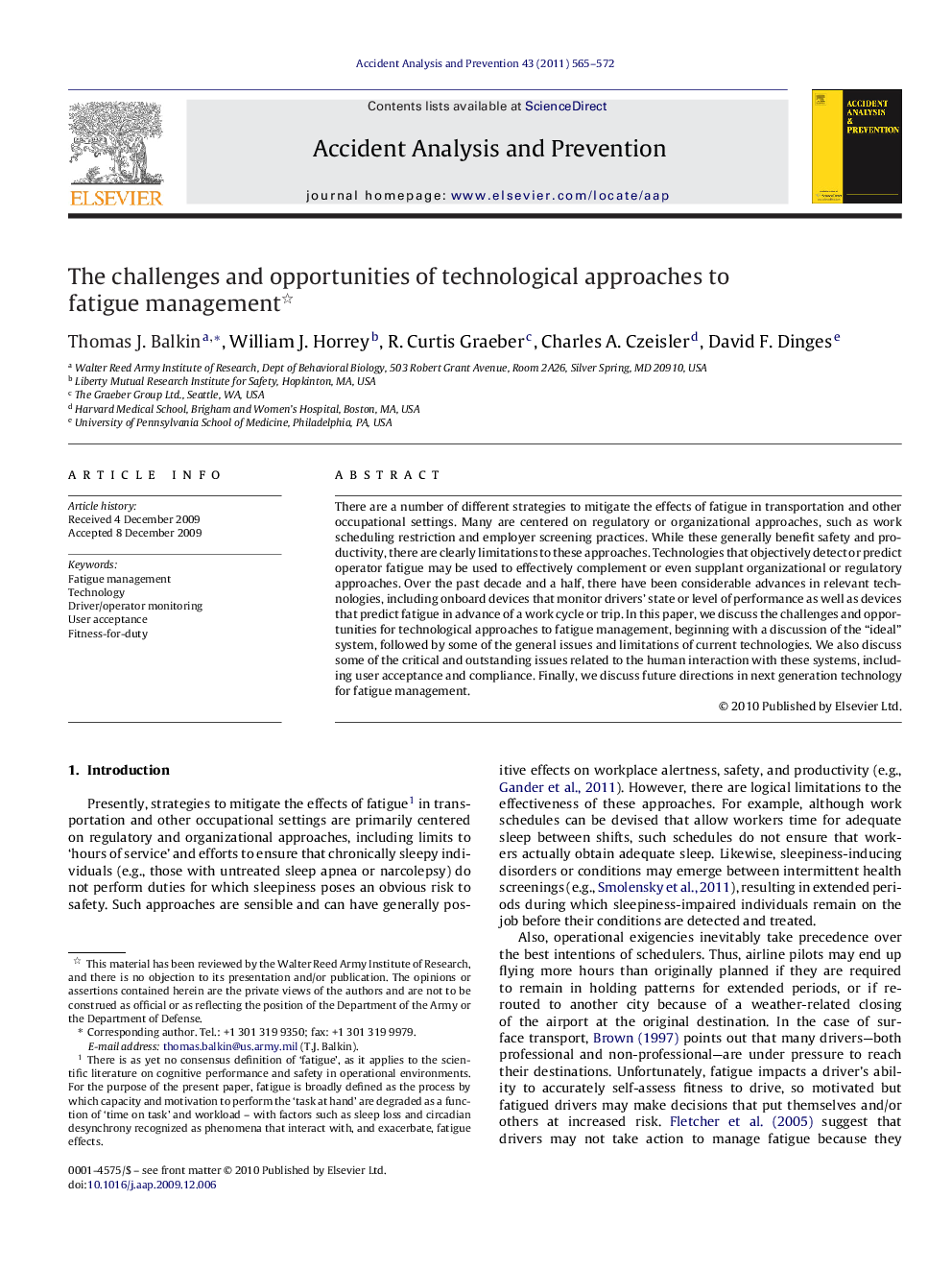| Article ID | Journal | Published Year | Pages | File Type |
|---|---|---|---|---|
| 573213 | Accident Analysis & Prevention | 2011 | 8 Pages |
There are a number of different strategies to mitigate the effects of fatigue in transportation and other occupational settings. Many are centered on regulatory or organizational approaches, such as work scheduling restriction and employer screening practices. While these generally benefit safety and productivity, there are clearly limitations to these approaches. Technologies that objectively detect or predict operator fatigue may be used to effectively complement or even supplant organizational or regulatory approaches. Over the past decade and a half, there have been considerable advances in relevant technologies, including onboard devices that monitor drivers’ state or level of performance as well as devices that predict fatigue in advance of a work cycle or trip. In this paper, we discuss the challenges and opportunities for technological approaches to fatigue management, beginning with a discussion of the “ideal” system, followed by some of the general issues and limitations of current technologies. We also discuss some of the critical and outstanding issues related to the human interaction with these systems, including user acceptance and compliance. Finally, we discuss future directions in next generation technology for fatigue management.
